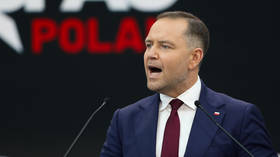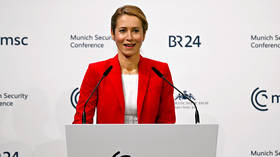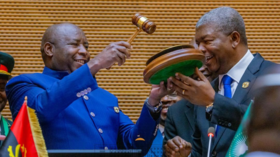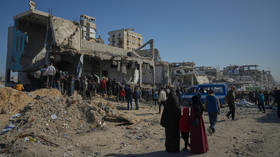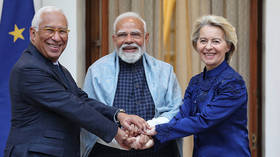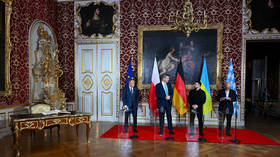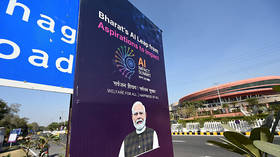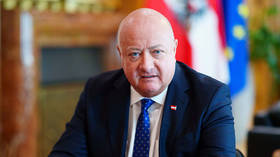‘Che dreamed of united Latin America standing strong against the US’ – Guevara’s daughter
Despite the propaganda surrounding Che Guevara, the Latin leader was a true revolutionary, and modern-day circumstances would have made him even more zealous to unite Latin Americans against their common foe, daughter Aleida Guevara told RT.
RT:Ms. Guevara, welcome and thank you for joining us. You have said that you have been very close to Fidel Castro. What do you think of the media speculation about his health; some reports claiming he’s dead, some reports claiming he’s alive? What do you think about that?
Aleida Guevara: Fidel is a totally unique man. He doesn’t get offended easily; it has to be something really offensive and usually something about other people for him to get offended. That’s why, for example, right now he is upset over all this media hype around Hugo Chavez’s medical problems. But Fidel never cared what others said about him. He pays no attention to such things, unless it is something really offensive or something about the people. That’s when he will react immediately.
RT:Aleida, your mother stayed silent about her romance with the fabled Comandante Che Guevara for almost 40 years – until recently, when she published a book revealing some of the details. Why did she find it so difficult to tell her story before? Why did she wait so long?
AG: First of all, you should know my mother. She comes from a rural area, and village folk in Cuba – like anywhere else, I suppose – are very sensitive about their romantic experiences. They are very tight-lipped about these things, and she was brought up in that culture. She has always been like that. That said, she was overwhelmingly in love with him. It was an incredibly beautiful love story. And it’s one of the things that make me feel so special – not because I am the daughter of a great man, oh no. I feel special because I am the daughter of a man and a woman who were dearly in love with each other, and I am the product of their love. That’s what makes me special.
Mother’s book tells the story of their relationship, the story
of her life through the lens of that love. Just imagine what it was
like for my Mother when Father died. He had been her first man. He
was her fiancé, her comrade, her friend, her mentor, her lover, the
father of her children. He was everything.
And then, just like that, he was gone. Imagine the pain she went through. She had to bring up and support four little children. So she was forced to lock up all those memories somewhere deep down and get on with her life. If she had been open, she wouldn’t have been able to carry on. A long, long time had to pass before she felt strong enough to revisit those memories. When she was getting down to writing the book I would often see her in tears. She cried so much I once told her, “Mom, why don’t you quit that book.” Luckily, she didn’t listen to me and she finished it. And that book is a truly incredible gift for me.
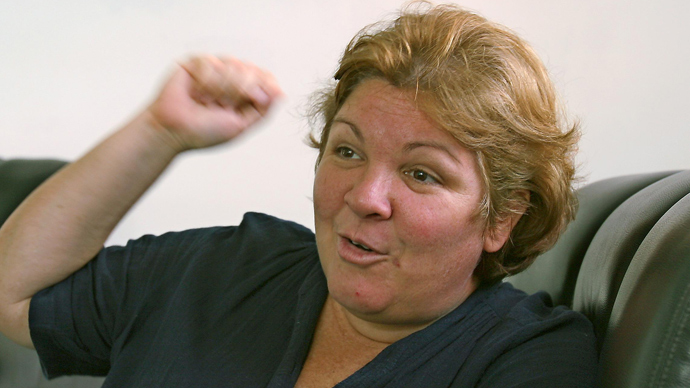
RT:That is a beautiful story. In the past ten years, there were lots of movies about Ernesto Che Guevara, and lots of biographies written. Which of the works you’ve seen and read give the most-reliable accounts?
AG: So far, there is not a single biography that I would
recommend. When I talk to young people, I usually advise them to
read what my Father wrote about himself. He had this habit of
writing down everything that was happening around him since he was
17. Many of his diaries have made it through to us, you can read it
firsthand and make your own conclusions. The only movie I would
probably point you to is 'The Motorcycle Diaries,' the only worthy
production in my opinion. It was made entirely by Latin Americans.
It’s a great movie and I highly recommend it.
RT:There are plenty of different views about Che
Guevara. Some say he was a hero and a martyr, others say he was a
terrorist, a murderer. What do you think about the chapter in his
life when had to kill people for the sake of his ideas?
AG: We are talking about war. When you are involved in a guerrilla war, you either live or die. This is the law of guerrilla warfare. But it is not murder. You don’t murder people. Murder is when you attack a defenseless person. But this is not the case when you are engaged in a battle. In a battle, you shoot at them because they shoot at you. You kill them because otherwise they’ll kill you. This is war. On the contrary, it was Che who was murdered. He was captured; he was unarmed and defenseless, and they killed him without trial. That was real murder.
But my father never did anything like that. They never killed
their prisoners; they would take care of them, provide medical
care; they would even slow down their advance because they had to
guard the prisoners and leave them in a safe place.
So people who accuse him of murder simply don’t know the whole story and have no idea of how great these people were – not only Che but everybody who fought together with him, all those people. This war shaped them. The Cuban revolution never involved murder. We were defending ourselves. And we will keep doing this.
RT:There’s also a lot of speculation about Fidel on this matter. Some even say that Che being dead was much more useful to Castro than when he was alive.
AG: This is the stupidest thing you can say. When Che was alive, he was immensely helpful to Fidel in Cuba. Fidel has said this many, many times. He said he was at peace working on other things, because he knew that Che was the minister of industries. The Cuban economy was in good hands, because Fidel fully trusted Che. But the situation changed when Che left. But Che had to move on. From the very start, when Fidel and Che were in Mexico, they made a deal. Che promised Fidel he would stay in Cuba until it is liberated, and then, if he is still alive, he will move on to other countries in Latin America. Fidel agreed to that, and he kept his promise.
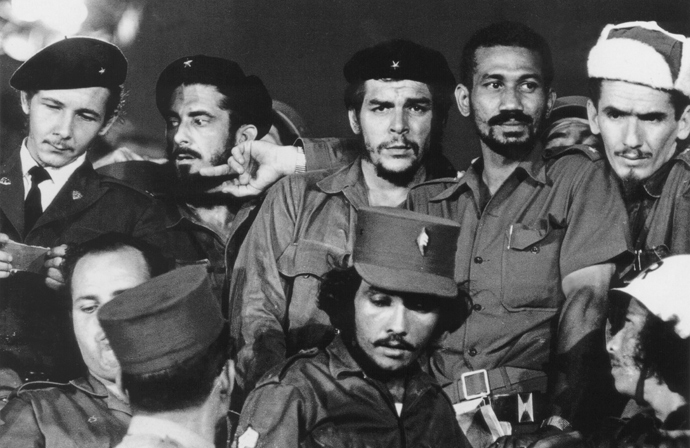
Once I came to Fidel. We had a very long conversation; we talked
for several hours, and eventually I said to him, “Tell me about
your disagreements with Dad. Tell me about these arguments people
keep talking about.”
So he told me how one time, when they were in Mexico, they knew
they would all be arrested, and Fidel told everybody to keep their
mouth shut about their political views. And then he asked me, “What
do you think your father did?” When he was in prison, he started
talking to prison guards about politics. He even talked to them
about Stalin! As a result, everybody was released except Che,
because police said he was a Communist. Fidel tried talking to him
but eventually he realized that Dad could not lie.
He was too honest; he could not lie. And there was nothing Fidel could say; there was nothing to talk about. “How can I argue with such a person?” Fidel said. So, that’s one of the arguments people say they had. But that was not even an argument. And Fidel stayed in Mexico and did not leave until my father was released, even though this jeopardized the entire plan they had for Cuba. And this was the beginning of a unique friendship between Fidel and my father. Dad realized that Fidel was a true general who always felt responsible for each of his soldiers.
That very evening, when I had that conversation with Fidel, I laughed and he asked me what was so funny. I said, “Uncle, – he was always Uncle Fidel to me – I’m laughing at you.” He said, “Why?” I said, “You don’t even notice it but you speak about Dad in the present tense, as if he was still alive.” He gave me a very serious look and said, “No, your dad is really here with us.” And that was the end of our conversation that night.
RT:The whole world knows your father’s face, and people buy merchandise with his picture on it. What do you feel when you see this?
AG: Sometimes I get angry because in many cases people abuse his image. Sometimes I even joke that I will sue them for distorting his face because Dad was a handsome man. Some of his images are just ugly. On the other hand, I always say that those pictures mean nothing if you don’t know what they represent, if you are not familiar with his life and what he did. Sometimes I would ask someone, “Why did you put on this T-shirt with Che?” And they say, “I have an exam coming up, and I’m not sure I’ll pass. So I put the T-shirt on, look at Che and tell myself not to give up, because if he made it, so can I.” Some responses are just marvelous. It means that, despite all the propaganda and nonsense told about him, people are not fooled. They don’t believe those lies. They understand what sort of people those revolutionaries were.
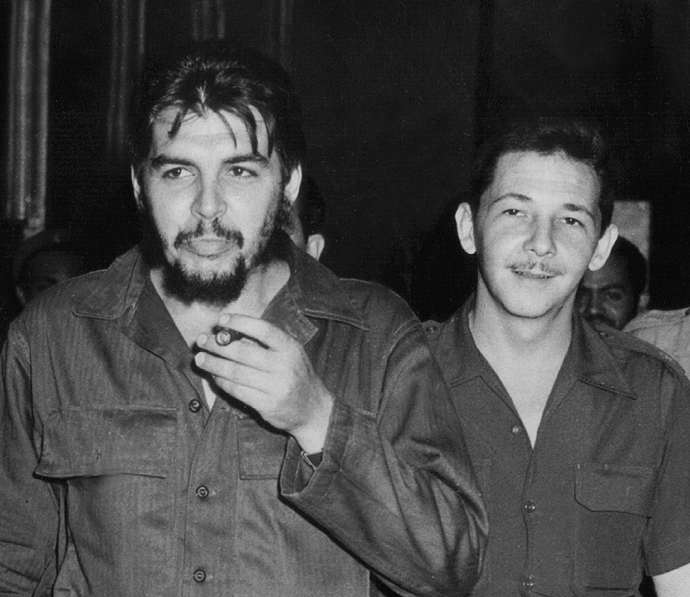
RT:Traveling across Latin America changed Che Guevara’s mindset. It made him a revolutionary. If he were to take a similar trip today, what would he see? Would it strike him as much as back then in the 1950s?
AG: Sadly enough, what made Che seek social justice for all is still alive and has even gained ground since then. The gap between the rich and the poor is only getting bigger, and people in Latin America know this very well. However, in recent years we have observed a new trend, with more leaders caring about people’s needs. Latin American leaders are beginning to understand that, if we join our efforts, nothing will stop us.
My dad would have certainly loved to find out that a Native American like Evo Morales has made it to the presidency. I think Che would’ve tried to support him and offer whatever assistance he could. He would have also endorsed the Bolivarian Revolution in Venezuela. For the first time in history, a president made his people the sole owner of all the oil resources in the country. It is unique in modern history. I think Che would have welcomed it and would have done his best to help Chavez. So many things nowadays would have made him a little happier, but the same things would have made him even more zealous because there is still so much more to do.
RT:How do you think Che would respond to today’s integration across Latin America? Would he support it?
AG: Well, that has long been a dream, and not just for Che. Che would say that unity among all Latin Americans is our only hope of standing strong against our common foe. And he made it clear that Latin America’s worst enemy is the United States.
RT:What about Cuba? If Che were to see the situation and the quality of life in today’s Cuba, would he feel proud about it?
AG: He would realize that there are still many issues
that need to be addressed, and many things that need to be
improved. But my Father would always stand by the people of Cuba.
He had this manner of voicing bare-knuckled criticism, and the
people were always willing to listen. So if he were still with us
today, he would be working just like everybody else, trying to make
things better. I guess he wouldn’t hold back his criticism, either,
but he would be committed to finding solutions. He would be very
busy.
The statements, views and opinions expressed in this column are solely those of the author and do not necessarily represent those of RT.


